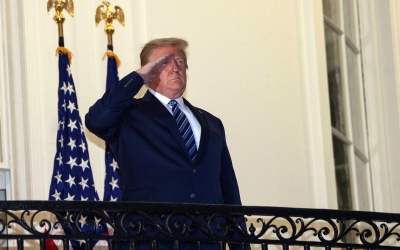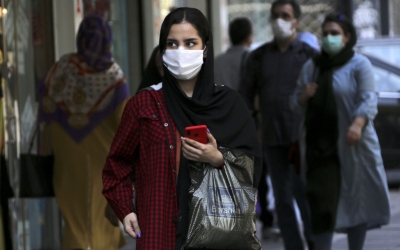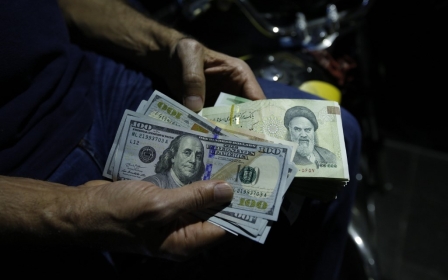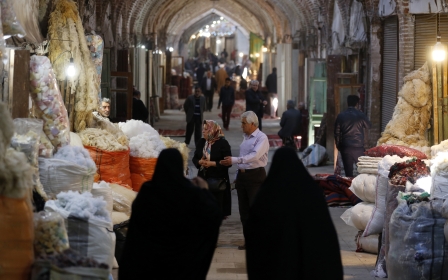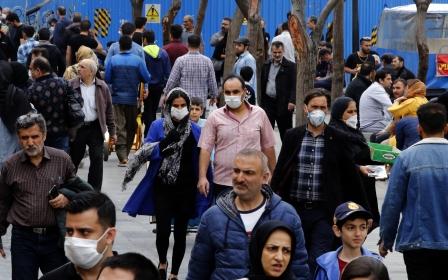Iranian press review: Hardliners hail new North Korea ballistic missile as 'role model'
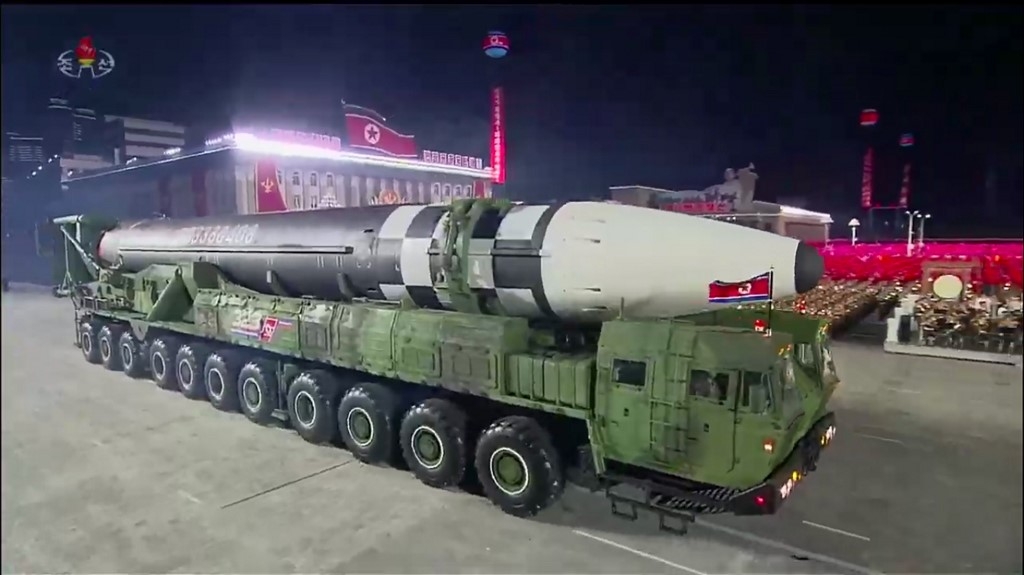
Hardliners urge Rouhani to follow in North Korea's footsteps
Conservative media and politicians in Iran have praised North Korea's unveiling of a new intercontinental ballistic missile, which can - theoretically - hit targets across the United States.
On Tuesday, the Javan daily, which is affiliated to Iran’s Islamic Revolutionary Guard Corps (IRGC), hailed the move as a deterrent against US military action towards Pyongyang.
According to Javan, North Korea’s access to new intercontinental ballistic technology means that the US president will have to negotiate with Kim Jong-un, regardless of who wins the upcoming presidential election.
Javan reported: "What proves the correctness of Pyongyang's logic in expanding its [ballistic] missiles is that even the Democrats, who had criticised [Donald] Trump’s meeting with Kim Jong-un, are now obliged to think of sitting at the negotiation table with North Korea.
New MEE newsletter: Jerusalem Dispatch
Sign up to get the latest insights and analysis on Israel-Palestine, alongside Turkey Unpacked and other MEE newsletters
"Officials in Pyongyang know that if Americans decide to negotiate with North Korea, that would be out of the fear of the missiles that can hit the US territory, and not a result of [the] diplomacy of trust and smile."
Javan blamed President Hassan Rouhani’s administration for creating a "missiles vs livelihood" dichotomy in Iran's political discourse.
"Harsh sanctions which have added difficulty to the life of North Koreans, did not force Pyongyang to deploy a humiliating 'missiles vs livelihood' dichotomy," it concluded.
The report on North Korea struck a chord with right-wing politicians and their supporters in Iran.
In 2015, Tehran signed a deal with international powers in which it curbed its nuclear programme in return for sanctions relief. But the US unilaterally withdrew from that agreement in 2018.
As a result, hardliners in Iran have pressured Rouhani, a moderate, to resume the country's nuclear programme and to invest more in its ballistic missiles programme.
"If we had the same missiles, the US would have not dared to impose sanctions on us … let alone talk of military attack [against Iran]," one Iranian social media user wrote on Twitter.
Israeli ex-minister in 'collaboration' with Iran
A high-ranking Iranian military commander has, for the first time, said that "an Israeli minister" had collaborated with Iran.
In an interview broadcast on Iran's national TV on 9 October, Brigadier General Mohammad Reza Naqdi, the deputy coordinator of the IRGC, was asked if he could "confirm that a minister of the Zionist regime [of Israel] had collaboration with Iran?"
In response, without naming anyone, Naqdi said: "Yes. Among them [Israeli officials], there are many people who have different motivations to work with us."
In January 2019, Israel's former energy minister Gonen Segev was sentenced to 11 years in prison after he admitted to spying for Iran. Until Naqdi's remarks, officials in Tehran had never commented on the arrest and imprisonment of the former Israeli minister.
In the interview, Naqdi also said Tehran would respond to any "move against its national security" by the US or Israel.
"Nothing but ashes would remain of Tel Aviv and Haifa, and we would liberate Jerusalem," he said. "If this movement begins, it would result in liberation of Palestine. Everything is ready for that day.
"Forces inside and outside Palestine are ready and well-trained, with enough arms," he added, without elaborating on which groups would carry out such an operation.
Naqdi, a former commander of the IRGC's infamous Basij militia groups, is known for his sensationalist comments. In another controversial remark in March, he said: "The Zionist regime won't last more than 10 years, maybe not even more than five years."
Yet despite his comments, Naqdi has been accused of employing people with ties to Israel among his closest aides.
In October 2019, Behzad Nabavi, a former deputy speaker of Iran’s parliament, revealed that two Israeli spies had been identified among workers at Naqdi's office.
Political rivalries deepen amid new wave of coronavirus
As a new wave of the coronavirus claims more lives in Iran, political factions have accused each other of negligence and failure in handling the pandemic.
Last week's cancellation of a meeting between the heads of the three branches of government has fuelled a war of words between reformist and conservative politicians.
On 6 October, Rouhani postponed a scheduled meeting with parliamentary speaker Mohammad Bagher Ghalibaf and chief justice Ebrahim Raisi, because Ghalibaf had visited a coronavirus ward at the Imam Khomeini Hospital in Tehran a day earlier.
In recent months, Ghalibaf, a former IRGC commander who is expected to run in Iran's 2021 presidential elections, has travelled to cities across the country and challenged the strategies of the Rouhani administration - both in the fight against the disease and in its economic response.
However, his visit to the coronavirus ward caused anger among reformist media.
Pro-reformist Arman daily accused Ghalibaf of making irresponsible propaganda moves and putting other people at risk of infection.
"The main question is with which goal [the] parliament speaker went to the hospital, and what he wants to prove,” the daily wrote.
"Surely a parliament speaker is not a specialist doctor. Nor was there an inauguration ceremony taking place at the hospital. If he wanted to show support to the health staff, he could have done that by passing laws to improve the salaries of health workers," Arman concluded.
However, conservatives have admired Ghalibaf's "bravery" and condemned Rouhani's "indifference" about the issues facing ordinary Iranians.
Abbas Salimi Namin, a conservative political analyst, told the Tasnim news agency that Ghalibaf's visit let the public know that officials were standing with the people and were aware of their problems.
*The Iranian press review is a digest of reports that are not independently verified as accurate by Middle East Eye.
Middle East Eye delivers independent and unrivalled coverage and analysis of the Middle East, North Africa and beyond. To learn more about republishing this content and the associated fees, please fill out this form. More about MEE can be found here.


